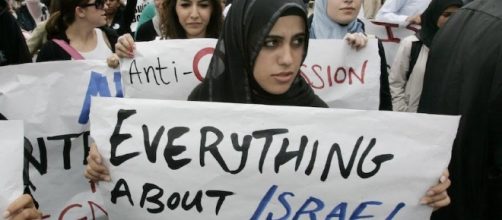Since its inception in 2005 the Boycott, Divestment and Sanctions (BDS) movement has grown in prominence around the world. The recent call by senior Palestinian Liberation Organisation (PLO) member Mohamed Ishta for South Africa to "lead an international BDS action", as reported in the Middle East Monitor, illustrates this. But the questions to ask are, not only is it fair what they are doing but is there an air of hypocricy in their pursuits?
Background to the movement
Before we proceed further, let us investigate more about the BDS movement. As stated, the BDS movement was set up in 2005 with the aim of applying "economic and political pressure" to Israel to ensure three main things: to firstly end Israel's 'occupation' on 'Palestinian land'; to secondly ensure full equality for Arab-Palestinian citizens of Israel; and lastly to acknowledge the right of return of Palestinian refugees.
This pressure is applied as the name goes; by boycott, divestment and sanctions against Israel. In addition to this, there have been organised demonstrations and rallies protesting their views, social media action via petitions and articles and pressure applied to individuals to cancel events in Israel or the settlement areas themselves.
BDS in action
As a result of such action, what we have seen throughout the world is support for the movement. In college campuses in the United States, the Washington Jewish Week website reported that resolutions calling for their schools to divest from doing "business with Israel" was occurring on a frequent basis. Furthermore, such actions of pressure applied as stated in the previous paragraph can be seen in a number of examples.
In 2009 supporters of Palestinian rights launched a global boycott campaign against the cosmetics company Ahava for its "role" in an illegal settlement, the Kairos Response website noted. Furthermore, as a result of having a subsidiary in two settlements, the Mexican company Cemex was targeted by divestment from a Norwegian insurance company over its operations. There is further action by the BDS movement through some of the products that it does boycott. The BDS list website noted that these include SodaStream, Ahava, Eden Water and Yarden wines.
The criticisms of the BDS movement
However, moving on, the first question to ask is, are what the BDS movement doing fair? It is fine that one may disagree with the actions of the Israeli government, but are the actions of BDS targeting the wrong people?
It is the ordinary people themselves who will suffer as a result of the actions of those in power. There are many Palestinians as well as Israelis working in Israel who may be affected. I have friends myself who are Israeli-Arabs and who have confided in me that they are concerned. Furthermore, have those in Europe and beyond who are supporting the BDS movement ever been to Israel? Have they seen the setup of society, the multi-culturalism that exists in towns such as Jaffa? Are they actually aware of what effect their actions are having? In addition, is there not an element of hypocricy in their actions? Although there are products that, as mentioned above, are boycotted, what about those that are not?
There is the intel chips used in computers, the technology in mobile phone devices and the software used in TV's. The list of vital products used in today's society goes on and on. It is not okay to pick and choose what to boycott and what to not.
It is fine believing in something. It is also fine applying that belief in peaceful ways through protest and political pressure. But if you are to do so, not only ensure that you are targeting the correct people and not the innocent shop owner or businessperson who has no connection to the actions of their government. And if you are to enforce this boycott idea, make sure that you do your homework and boycott all products, not just those that take your fancy.

